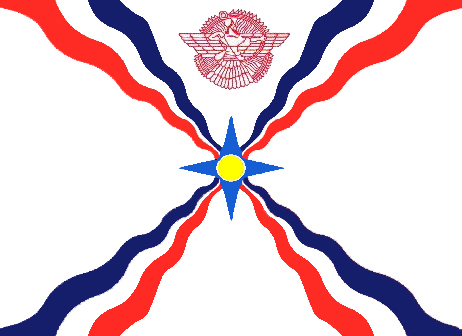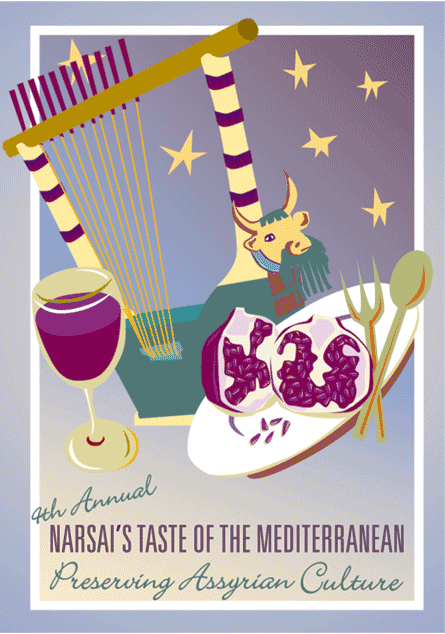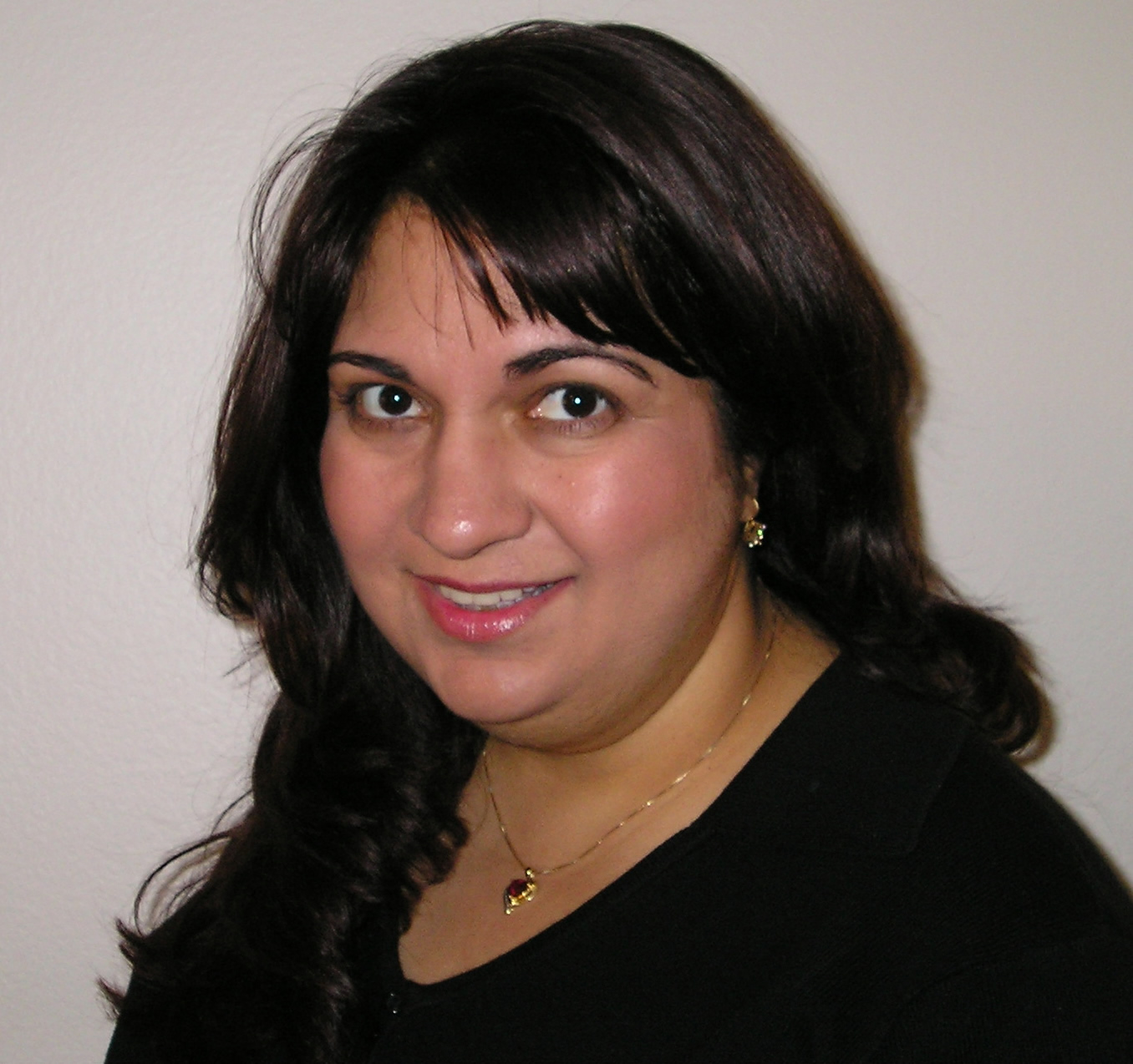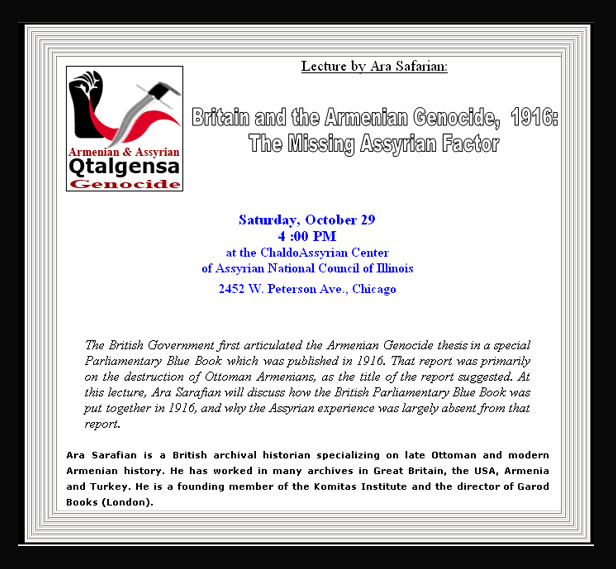A Report of the Speech by Mar Dinkha IV Delivered on Sunday, October 16, 2005 in Chicago
Fred Aprim
California
His Holiness Patriarch Mar Dinkha IV, Patriarch of the Assyrian Church of the East, delivered a speech in Chicago last weekend at the Hanging Gardens Banquet Hall in Chicago to commemorate 29th Anniversary of his Consecration as Patriarch of the Assyrian Church of the East.
His Holiness began his speech by speaking about the clergymen who have completed education at our own theological schools and were now in Rome for their higher education. He stated that the Church assists these clergymen with much of their expenses. Then he went on to describe his itinerary in details, a journey that took him one month and 22 days to complete. He began his journey with a visit with our people in London. Next, he arrived in Tehran on May 6, 2005. He stated that he visited Iran because our congregation there does not have a bishop and that he oversees that bishopric. The Patriarch described in detail his visit to Tehran and Urmia, how he visited the various churches, shared Holy Communion with the people, and how he ordained many deacons. His Holiness stated that he met with the former Iranian President, Mr. Khatami, and seven ministers in the Iranian cabinet and other officials, and that he presented to them the community's concerns. He stated that he participated in a conference that was attended by many religious leaders, representing various sects and beliefs in Iran, to discuss the means by which all these faiths can coexist in peace and harmony.
The Patriarch later described in details his visit to Australia and New Zealand that began on July 14, 2005, after he stopped in San Jose and Turlock/Modesto area. In Australia, he participated in the ground breaking ceremony of a project to build 50 homes for the elderly and retired Assyrians. The patriarch visited with the Assyrian students of the Rabban Hurmizd Assyrian School and was very pleased with what he saw. He praised Bishop Mar Meelis for his efforts in this regard. After his return to Australia from a short visit to New Zealand, the Patriarch traveled to Canberra, the capital of Australia, where he met with the Iraqi and Iranian ambassadors and other officials.
On his way back to the United States, His Holiness visited Los Angeles where he participated in the opening ceremonies of the Assyrian school at St. Mary's Church on August 21, 2005. He praised Rev. Gewargis Bet-Rasho for his tireless efforts for the community.
The Patriarch continued to describe the efforts to construct new churches and halls in many localities. In Turlock (Mar Addai) School and hall are being constructed. A church will follow later. In Chicago, in North Brook, the church of Mar Andrious is in the planning and the Patriarch has blessed Mr. Andy Youkhana and his family for donating the land. In Canada, efforts are in the making to build the St. Mary's Church. The Patriarch praised Bishop Mar Emmanuel for his hard work and blessed him. Other such projects are undergoing in Detroit, and in Arizona, as Bishop Mar Aprim has informed the Patriarch. Furthermore, His Holiness mentioned that he was informed lately by Bishop Mar Giwargis that the new Assyrian school in Kirkuk is in its final phases of completion. Meanwhile, Bishop Mar Isaac informed the Patriarch that a church is being built in Ankawa and two others in Nohadra (Dohuk) in north Iraq. These churches are to be completed around Easter of 2006. The Patriarch stated that he will travel to Iraq after Easter to consecrate these new churches.
Patriarch Mar Dinkha's next topic was the upcoming October 31, 2005 Holy Synod of the Assyrian Church of the East. He mentioned that the sole purpose of the synod is to address the relations with the Vatican. He stated that our communications with the Vatican begun in 1984 and led to the signing of the Christological Agreement of Understanding in 1994. Both the Roman Catholic Church and the Assyrian Church of the East have formed a 7-member committee that meet regularly. The committee of the Roman Catholic Church has two bishops from the Chaldean Catholic Church. Since 1994, and until 2004, the discussions between the two Churches have been about the "Seven Sacraments" of the two Churches. The Assyrian Church of the East has agreed on these sacraments and has presented its thoughts to the Vatican. The Vatican's response was received and they have made few small changes. The Assyrian Church of the East needs to meet in the Holy Synod again in order to discuss these changes and respond to the Vatican for the last time. Of course, the Patriarch stated that during the 7-day synod, all bishops are at liberty to express their thoughts and suggestions and if those thoughts are to the benefit of the Church as a whole, they would be accepted and implemented. The Patriarch stated that our responsibilities are first towards our own people and Church.
The Patriarch stated that all churches must work together and unite; however, that should not mean that Churches must dissolve or mix with one another. He added that we as Christians must communicate with all other Churches to achieve Christological unity but not to dissolve into other churches or change and lose our own "Order," "Sacraments," "Liturgy," “Church Laws”, or the leadership of the church.
Mar Dinkha stated that he believes in God, his Son Jesus, and the Bible, and he has always followed the teachings of God; however, he believes that nationality wise he is an Assyrian. He added that the Church's stance has been communicated to our political leaders that clergymen will not get involved in the political matters; however, he respects all Assyrians who work for the progress of our people. He added that he personally did not and will not get involved in politics because we have capable secular leaders whom if united and work together they could genuinely lead our ship to harbor of safety. His Holiness added that it was vital today that we achieve national unity in Iraq.
The Patriarch stated that he believes the Assyrians, Chaldeans, Suryanis are of one nation and that if the secular leaders, various political groups, and civic institutions of the three communities extend their hands to each other and work together as one nation and for a united goal, then we could accomplish much. His Holiness suggested that every one of these communities should select a group of its devoted, educated, meek, patient, wise, and honest people in order to work together with their counterparts. He added that in Iraq things are moving fast and if Assyrians, Chaldeans, Suryanis continue to argue among themselves and defeat each other on who is first or last, we will remain in our places and attain nothing.
The Patriarch asked the religious leaders of all three Churches not to get involved in the political matters and to leave politics to our secular people, political groups, and national institutions. He emphasized that if each of these communities worked alone we will get nowhere. However, His Holiness believes that if these three branches of our nation worked hand in hand, then they could gain many rights in the future Iraq and will be capable of protecting the rights of the Christians in Iraq as well because Assyrians, Chaldeans, Suryanis are all Christians, sons and daughters of the Church of Christ.
Patriarch Mar Dinkha stated next that he received a call from Dohuk from malik Shamisdin malik Gewargis of Lower Tiyari. The Patriarch stated that he was very happy to learn that they were rebuilding our villages (homes) in Barwr, Sapna, and other places and that our people are returning to their villages. He continued to state that he was glad to hear that our people were living in peace and harmony with our neighbors. Mar Dinkha stated that our people who live in northern Iraq, which, today, is called Kurdistan, must be in peace and love with their neighbors. Those who are sitting in the West do not know about the situation back there. Therefore, he asked that people not to judge those living in the East. Similarly with those living among the Arabs and the Turks, our people must live in harmony with them as well. The Patriarch added that we, today, could not get our rights by force because we cannot fight. Today, we must live in peace, love, and harmony with our neighbors in order to live comfortably.
"As you have heard", stated the Patriarch, "in the last few years in cities and villages in northern Iraq, now being called Kurdistan, our people have opened schools and printed books in the Assyrian Aramaic language. It is great happiness that Assyrian, Chaldean, Suryani boys and girls are studying this language, as well as translating books to this language. They are studying this language in high schools, as told by Younadam Kanna, this language will be taught in other regions throughout Iraq as well. The new constitution declared that all ethnic groups in Iraq should have the right to study and teach their language, and preserve their belief in complete freedom. This Assyrian Aramaic language will bring us together because all three of our communities read it."
The Patriarch stated next: "If you ask a Chaldean what language this is, he will say Chaldean language.
If you ask a Suryani what this language is that you are studying, he will say Syriac.
If you ask me what language this is, I will say Assyrian language.
Therefore, all three of us are saying that it is my language. This proves that Assyrians, Chaldeans, Suryanis are of one nation."
In his final remarks, the Patriarch congratulated Dr. Emmanuel Kamber and Mr. Sheeba Mando for their new positions as the Secretary General of the Assyrian Universal Alliance and Assyrian National Council of Illinois respectively, and wished them and those elected with them, well and success in serving the Assyrian people and blessed them.
In closing, Patriarch Mar Dinkha supplicated to God to open the doors of mercy and hear the wishes of all Assyrians, Chaldeans, Suryanis. He asked God that Assyrians, Chaldeans, Suryanis work together as members of one "pisqa Ashuraya" (Assyrian flock). He prayed and wished peace and stability for Iraq and all people living in Bet Nahrain.










